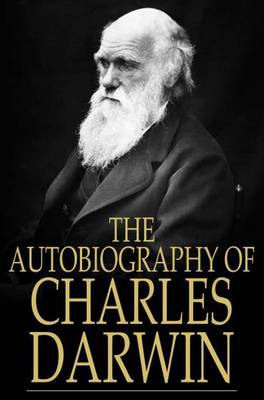|
The Autobiography of Charles Darwin
By Charles Darwin (edited and published Francis Darwin) Published in 1887 Thibault’s Score: 4/5 It has been estimated by psychologists that Charles Darwin had an IQ of 165. This book sure reads like it was written by someone with an IQ of 165. When Darwin died in 1882, his children searched his possessions and found a partially finished autobiography. They completed the autobiography, and published it five years after Darwin’s death. This book is very informative in many regards. It is a great read for people who want to learn more about biology, because Darwin explains in his own words how he came to the conclusions he reached. It also has value as a historical document about life in the 19th century. The quality of the writing is amazing - despite the long sentence structures used in the 19th century, the language reads very well, and the style is clear and easy to read. Charles Darwin was born to a wealthy family in England in 1809, and grew quickly fond of science. His childhood is one of consumate curiosity, much to the chagrin of Darwin’s family, who worried that Darwin wouldn’t achieve very much in his life. Darwin was a mediocre student, and although his parents spent a lot of time, money, and effort to educate him, he didn’t perform very well in school. After several academic failures, Darwin decided to study to become a priest, but once again failed in his priestly studies. This was despite the fact that Darwin’s parents had hired several personal tutors to help him. While studying at Cambridge, Darwin fell in love with natural science. After graduating, he decided that the academic lifestyle wasn’t for him, and found a job as a naturalist on the HMS Beagle in search of adventure. One thing which disappointed me a lot about this book is that Darwin doesn’t write very much about his travels on the HMS Beagle, and instead directs the reader to his other books. Instead, he spends the last half of his book talking about his life in England after he returned from the voyage on the Beagle. One very interesting aspect of the book was that the reader can see Darwin’s personal moral evolution. As a child, Darwin experimented with cruelty. He committed a few vile acts, such as tormenting a puppy. Over time, however, he became an increasingly caring and empathetic individual. By the time he leaves on his journey on the Beagle, he was deeply concerned with issues such as slavery, and had a unique moral view of mankind. In the last few chapters, Darwin talks about his life philosophy. We all have everything to learn from Darwin’s inquisitive philosophy of rational analysis. While describing geology, he sums up his life philosophy: “Upon first examining a new district, nothing can appear more hopeless than the chaos of rocks. But by recording the stratification and the nature of the rocks and fossils at many points, always predicting and reasoning what will be found elsewhere, light soon begins to dawn on the district. The structure of the whole becomes more or less intelligible.” Using reason, Darwin systemically organizes chaotic systems into workable mental models. This skill allowed him to accomplish as much as he did. Darwin is a very curious individual and a good writer. This was a fantastic read that I highly recommend.
0 Comments
Leave a Reply. |
Thibault SerletMost of my articles are book reviews, but I also write about many other topics. Archives
December 2023
Categories |

 RSS Feed
RSS Feed